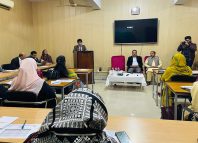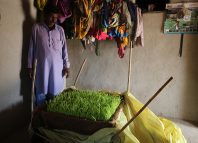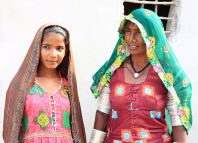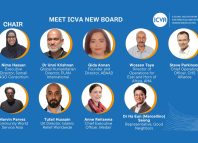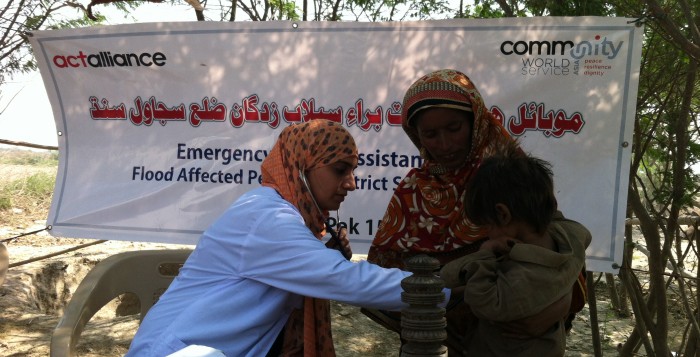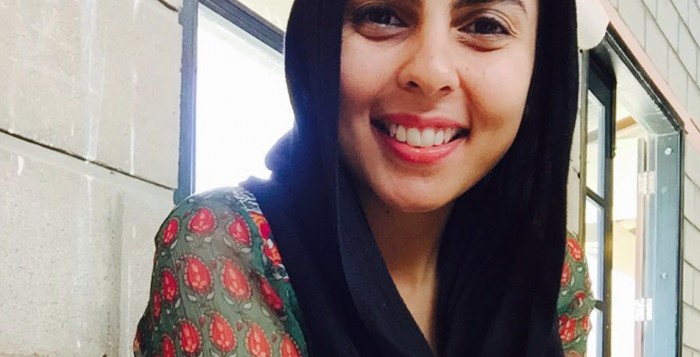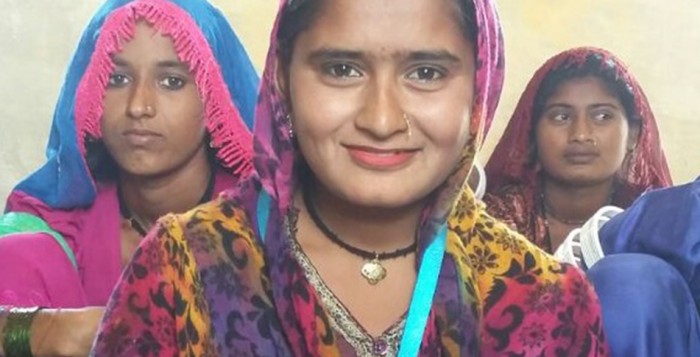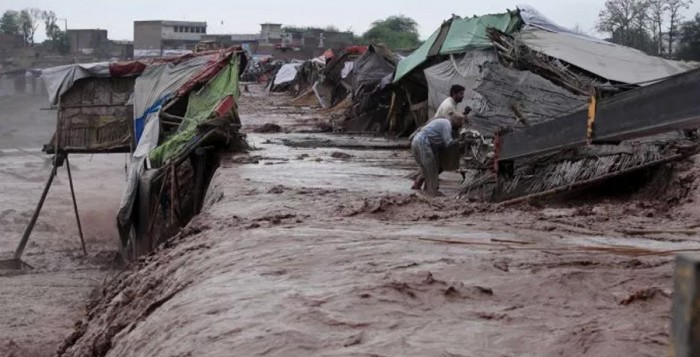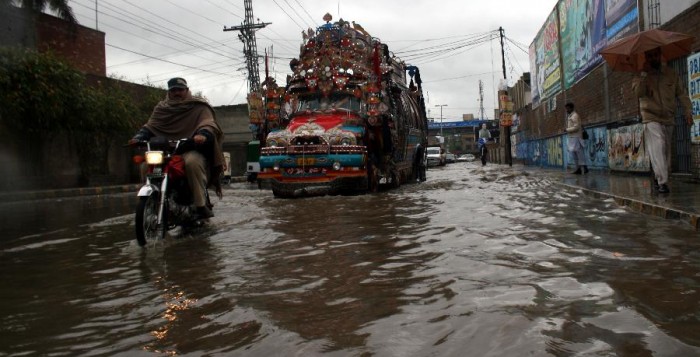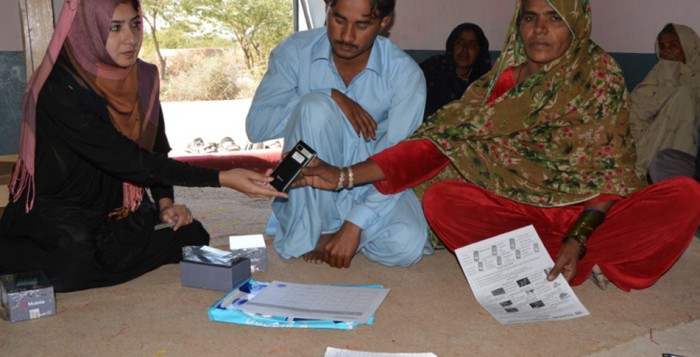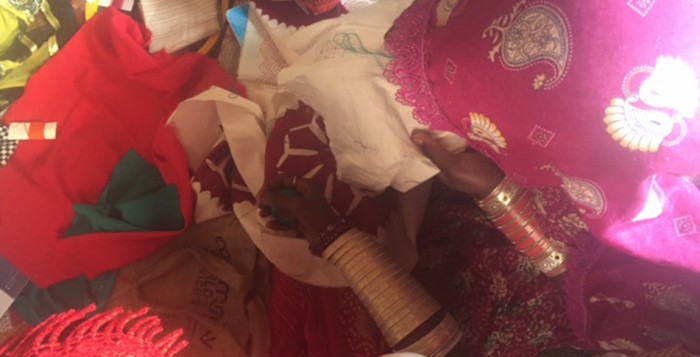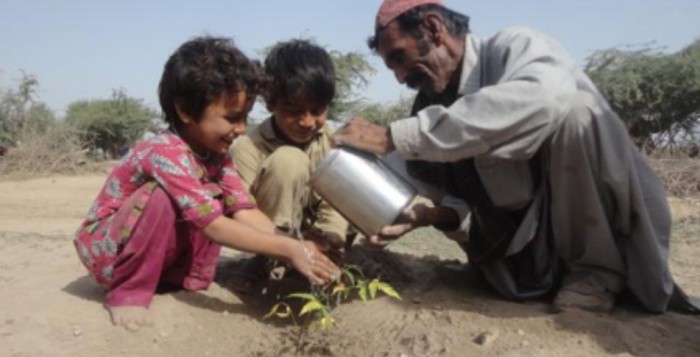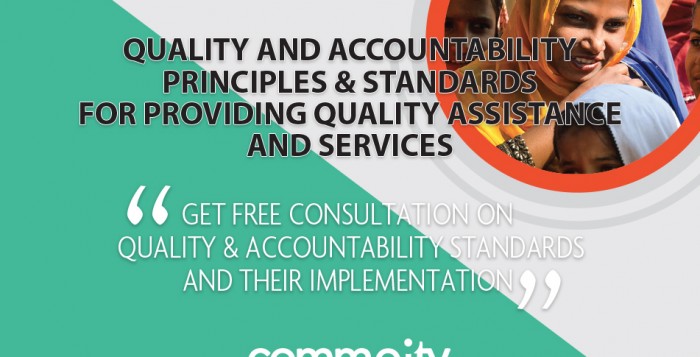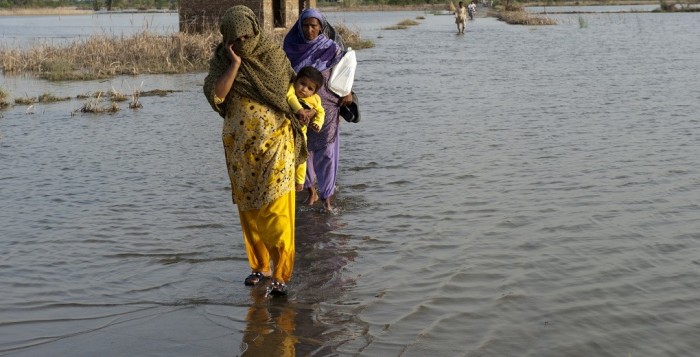Community World Service Asia, with the support of the ACT Alliance, has been working to respond to the needs of families affected by severe flooding in 2015. District Sujawal, in the Sindh province of Pakistan, has been faced with many serious health risks in the aftermath of the flooding. Access to health facilities and services is a major issue for the community, as the nearest government health facility is at least five kilometers away. With high levels of poverty, unreliable income sources and the losses faced by families as a result of the floods, the cost of transport and treatment can be an insurmountable obstacle.
Stagnant water and poor shelter conditions result in widespread incidences of malaria, diarrhea, fever, scabies and other skin diseases. Families who have been displaced by the flooding, as well as young children and the elderly, are especially vulnerable to these illnesses.
Community World Service Asia has been working directly with communities in the Union Councils of Bello and Bijora in District Sujawal for many years, and has developed strong relationships in these areas. In order to meet the urgent health needs of these communities, a seven-month project was initiated in August 2015. Mobile health units enabled vulnerable groups such as women, children, the elderly and persons with disabilities to access health care in their own villages, and have consultations with doctors. A total of 12,793 patients were examined by doctors in this seven-month period, which enabled health issues to be properly identified and addressed. Essential medicines were also provided to patients, which eased the financial burden of health needs and ensured that patients were able to receive the treatment they needed.
In such situations of uncertainty and insecurity, pregnant women in particular are faced with specific risks and challenges. A Lady Health Visitor and a doctor were also available to provide vital ante- and post-natal care services to 388 women.
As well as responding to current health needs, 362 awareness-raising sessions on health and hygiene were delivered to 8,378 community members in order to prevent the outbreak of illness through improved knowledge and practices.
Community World Service Asia is committed to the accountability of all its interventions, and works to ensure that our projects are implemented in a way that is inclusive and participatory. A key method for engaging and empowering the communities we work with is to form village committees, who play a vital role in liaising between the communities and the project teams, identifying relevant issues and mobilizing the community. In seven months 24 village health committees were formed in Union Councils. We are also committed to ensuring that the voices of all affected people are heard, so half of these committees are women’s committees, and are dedicated to highlighting and addressing the needs of women in the area.

